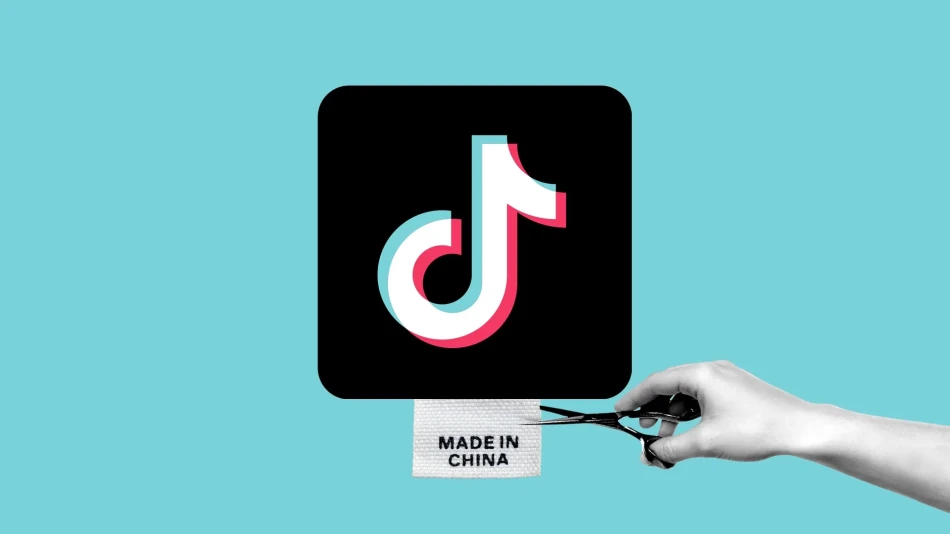
White House Expects TikTok Deal Soon, Securing US Control Over App's Algorithm
Trump's TikTok Deal: A Strategic Win or Hollow Victory?
The White House announced Saturday that a deal to place TikTok under American ownership is nearly complete, with U.S. control over the app's prized algorithm—the secret sauce behind its global dominance. While President Trump claims victory in forcing Chinese parent company ByteDance to relinquish control, the arrangement's actual structure and Chinese government approval remain uncertain, leaving TikTok's 170 million American users in limbo.
The Framework: American Control with Chinese Shadows
White House spokesperson Caroline Levitt told Fox News that the administration is "100% confident" the deal will be signed within days. Under the proposed structure, majority ownership of TikTok's U.S. operations would transfer to American entities, with Oracle handling data security and infrastructure—a role the tech giant has been preparing for since 2020.
The governance model centers on a seven-member board with six Americans controlling decision-making. Most critically, the algorithm that determines what content users see would fall under U.S. jurisdiction, addressing national security concerns about potential Chinese manipulation of American public opinion.
The Algorithm Question
TikTok's recommendation engine represents perhaps the most sophisticated content discovery system ever built, capable of keeping users engaged for hours through precise behavioral prediction. Previous negotiations stumbled over this exact issue—ByteDance viewed the algorithm as core intellectual property, while U.S. officials saw it as a potential weapon for information warfare.
Reports suggest American users will migrate to a new app powered by a rebuilt version of the current algorithm, developed by TikTok's existing engineering teams. This technical solution could satisfy both sides: China retains ownership of the original code, while America gets functional independence.
Market and Investor Implications
For investors, this deal represents a masterclass in geopolitical arbitrage. Oracle's expanded role solidifies its position in the lucrative social media infrastructure market, potentially worth billions annually. The company's stock has already reflected investor optimism about securing TikTok's massive data processing needs.
More broadly, the arrangement establishes a precedent for how Chinese tech assets might be restructured rather than banned outright. This "controlled divestiture" model could apply to other Chinese-owned platforms facing similar scrutiny, from gaming companies to fintech providers.
Global Context: The New Digital Cold War
Trump's TikTok strategy mirrors broader efforts by democratic nations to reduce dependence on Chinese digital infrastructure. India banned TikTok entirely in 2020 following border tensions, while the European Union has imposed strict data localization requirements. Australia and Canada have removed the app from government devices.
Unlike these approaches, the U.S. solution attempts to preserve TikTok's cultural and economic value while eliminating security risks. This nuanced strategy could become a template for other Western nations grappling with similar dilemmas.
The Chinese Response: Calculated Ambiguity
Beijing's reaction has been notably restrained, with officials offering mixed signals rather than outright rejection. This suggests Chinese leadership may view the deal as preferable to a complete ban, which would eliminate ByteDance's access to the world's largest advertising market.
However, China's final approval remains uncertain. The arrangement essentially forces a Chinese tech champion to surrender its most valuable international asset, setting a precedent that could encourage other nations to make similar demands.
What This Means for Users and Creators
For TikTok's massive American creator economy, the deal offers continuity over disruption. Influencers who have built million-dollar businesses on the platform can continue operating, while advertisers maintain access to TikTok's uniquely engaged audience.
The transition to a new app, however, introduces technical risks. User data migration, creator monetization tools, and the algorithm's effectiveness under new ownership all represent potential friction points that could benefit competitors like Instagram Reels and YouTube Shorts.
The Broader Stakes
This deal transcends TikTok itself, representing a test case for how democracies can maintain technological sovereignty without sacrificing innovation or user choice. Success could demonstrate that forced restructuring offers a viable alternative to blanket bans, preserving competitive markets while addressing legitimate security concerns.
Failure, however, could embolden more aggressive approaches, potentially fragmenting the global internet into competing technological blocs. The stakes extend far beyond social media, touching everything from cloud computing to artificial intelligence development.
With Chinese approval still pending and technical details unresolved, TikTok's American future remains uncertain. But the framework emerging from these negotiations could reshape how nations balance digital security with economic openness for years to come.
Most Viewed News

 Sara Khaled
Sara Khaled






